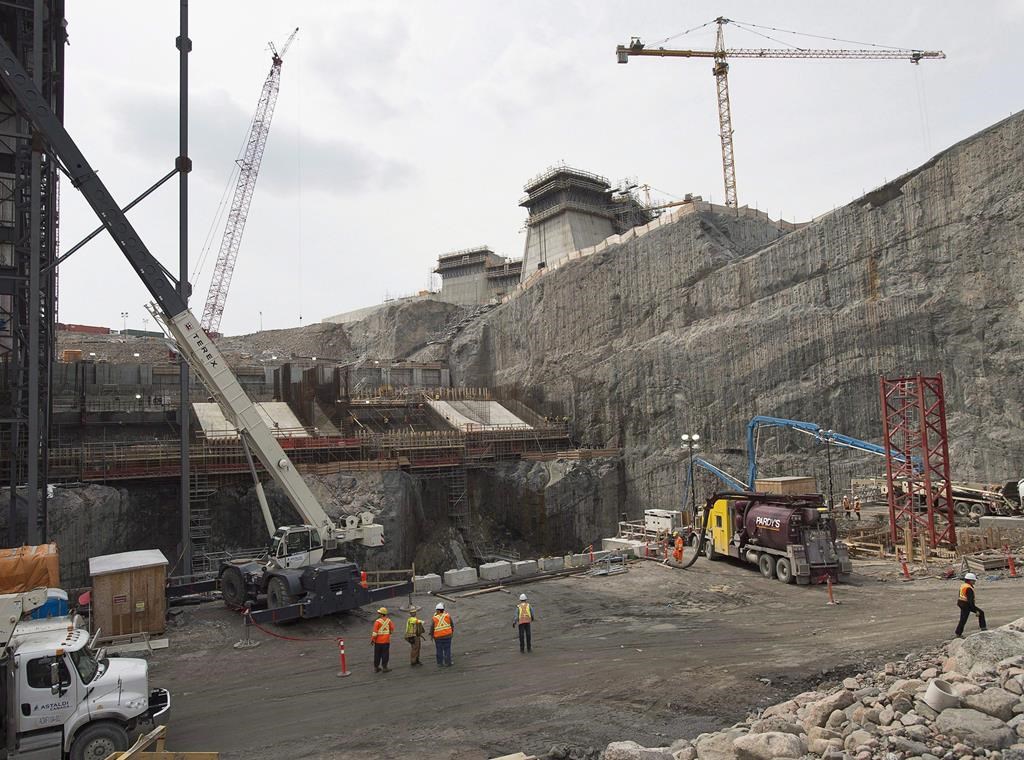Former premier Danny Williams told the Muskrat Falls inquiry Tuesday he remained confident in his government’s detailed assessment of the hydro megaproject’s potential risks, even as the judge hearing the inquiry said they haven’t seen evidence that a thorough review was undertaken.

The hydroelectric dam on the Lower Churchill River has essentially doubled its estimated costs to more than $12.7 billion since it was sanctioned in 2012, resulting in a public inquiry into schedule and cost overruns.
Justice Richard LeBlanc, who is leading the inquiry, said Tuesday that for a costly government endeavour like Muskrat Falls, he expected to see documentation of input from other departments like finance, natural resources and the treasury board looking at potential financial impacts on Newfoundland and Labrador.
READ MORE: Former N.L. premier Danny Williams says province can be ‘really proud’ of Muskrat Falls megaproject
LeBlanc said inquiry staff have reviewed documents up until November 2010, a month before Williams retired from politics, and they have not yet found evidence of detailed internal government scrutiny.
“One thing we haven’t found so far is any of that, in any of the documents that were produced, at least up to November,” LeBlanc said.

Get breaking National news
“It is a bit surprising to us that we haven’t seen that.”
The commission of inquiry is reviewing 2.5 million documents, and LeBlanc noted that the evidence might still appear during the hefty investigative process.
Williams agreed with LeBlanc that a project of such magnitude warrants serious financial study, and said his government would not have merely accepted Crown corporation Nalcor Energy’s cost estimates and analyses at face value.
Williams believes the project was properly assessed over the course of the eight years before it was sanctioned by Kathy Dunderdale’s government in 2012, but couldn’t speak to who in exactly in government would have carried out such analyses.
He said the reviews may not have been done by the province’s finance department specifically, but declared his trust in the integrity of his government’s former officials, and he believes the paper trail is out there.
“Knowing these individuals, there certainly would be scrutiny of the numbers going through,” said Williams.
“There’s a lot of people that went through this and had a look at it and assessed it.”
Williams was also questioned by lawyer Caitlin Urquhart, representing the Labrador Land Protectors and Grand Riverkeeper Labrador, about consideration of potential environmental impacts like methylmercury poisoning downstream from the site – fears that nearby communities still consider unresolved.
Williams said he believes the project is clean and sustainable, and he’s confident that officials who “know more about it than I do” appropriately assessed the complex environmental concerns.
He also took questions from the Concerned Citizens Coalition counsel Geoff Budden, representing some of Muskrat Falls’ most outspoken critics, about whether the former premier has taken critiques of the project seriously.
Williams said he thinks constructive criticism is a good thing but remained adamant that he has a right to push back against his critics in a “democratic society.”
“I’ve got to try and defend what I’ve done,” said Williams.
The 824-megawatt hydroelectric dam, which is more than 90 per cent complete, will send power to Newfoundland and later Nova Scotia through subsea cables.











Comments